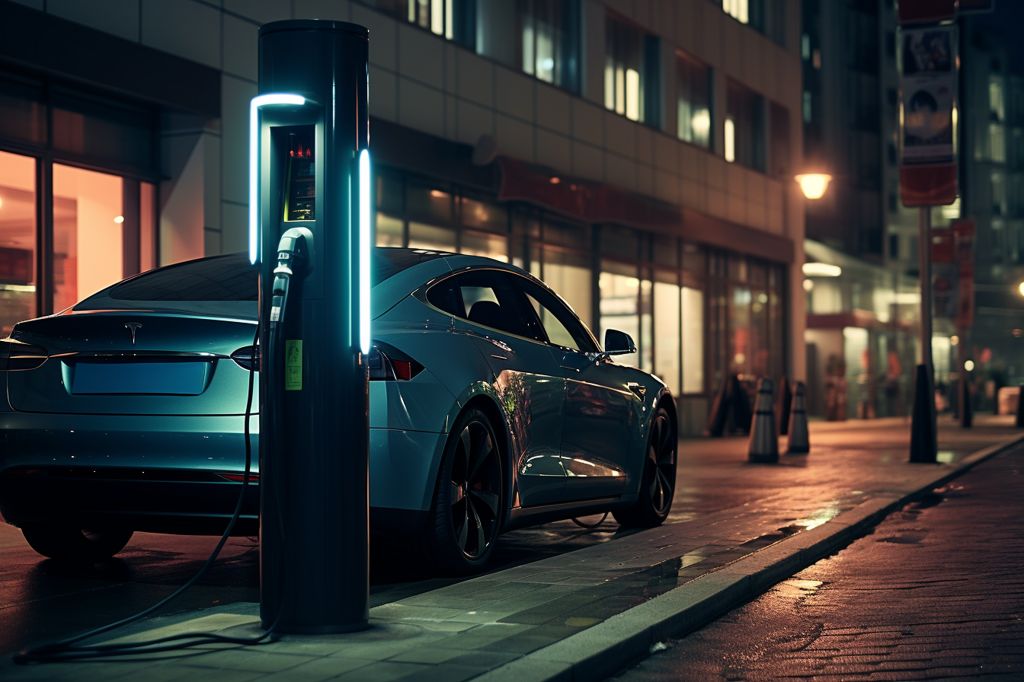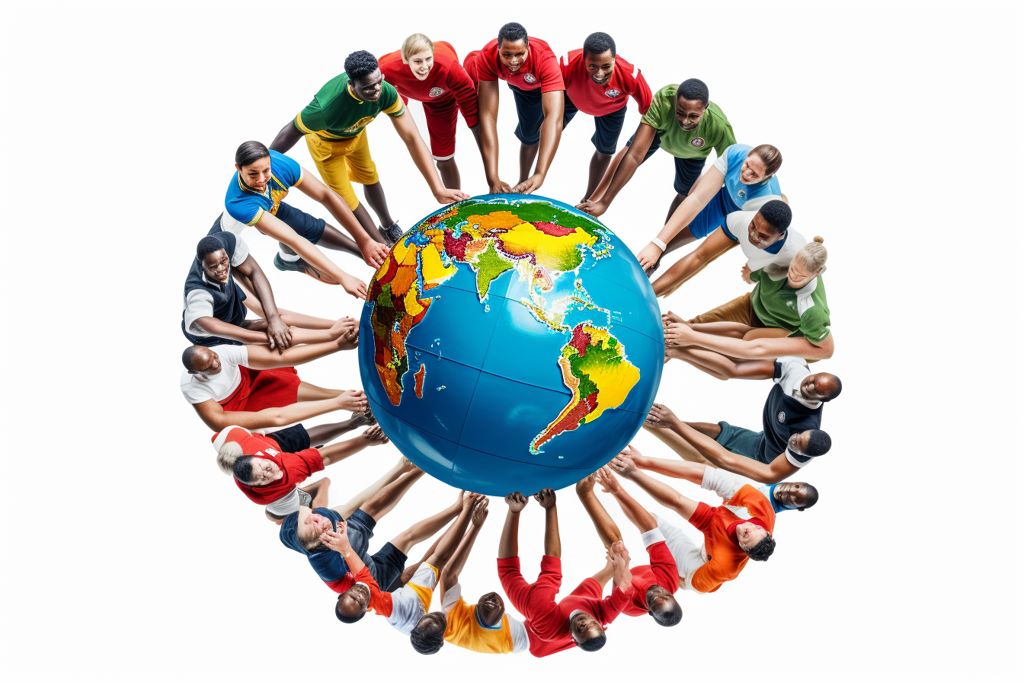Deputy President Paul Mashatile emphasized the importance of smarter mobility solutions to address rapid urbanization and population growth in Africa during his keynote speech at the Smarter Mobility Africa Summit Gala Dinner. With the world’s population set to reach 8.5 billion by 2030 and half of the 2 billion people to be added coming from Africa, it is essential to invest in infrastructure and network industries that ensure a sustainable ecosystem and enhance the quality of life for all. Leveraging technology, such as battery electric vehicles and clean energy sources, and addressing challenges, such as accelerating investment in critical infrastructure and digital solutions, can create new economic opportunities and promote women’s emancipation in traditionally male-dominated sectors.
The Critical Role of Smarter Mobility in Africa’s Urbanization
The Smarter Mobility Africa Summit Gala Dinner was recently held at the Gallagher Convention Centre in Midrand, Johannesburg. Several distinguished attendees were present, including Deputy President Shipokosa Paulus Mashatile. In his keynote speech, Mashatile stressed the importance of adopting smarter mobility solutions to address rapid urbanization and population growth in Africa. He asserted that by harnessing technology, we can enhance transport networks, alleviate traffic congestion, and improve overall efficiency, thus contributing to a more sustainable future.
Mashatile underscored several vital global trends, such as globalization, inequality, environmental crises, and demographic shifts, which require innovative solutions. The United Nations forecasts that the world’s population will reach 8.5 billion by 2030 and 9.7 billion by 2050, and it is noteworthy that half of the 2 billion people to be added will come from Africa. The African Development Bank Group also predicts that 80% of the continent’s population increase will be concentrated in cities.
However, rapid urbanization is accompanied by heightened inequality, which poses a severe risk to global development, peace, and security. Governments and cities must prioritize urban planning policies that are adaptive to these changes and invest in infrastructure and network industries that ensure a sustainable ecosystem and enhance the quality of life for all.
Leveraging Technology for Innovative Mobility Solutions
In an era of rapid technological advancements, there is an unprecedented opportunity to transform transport networks. Major cities such as Lagos, Nairobi, and Johannesburg face significant challenges in heavy congestion, overcrowded public transport systems, poor traffic management, and overall inefficient public transportation systems. There is a need for more creative mobility solutions that utilize technology to optimize routes, reduce traffic congestion, and provide real-time information to commuters using data.
One such example is battery electric vehicles (BEVs) and clean energy sources. By transitioning to electric vehicles and adopting clean energy sources, we can decrease carbon emissions and contribute to achieving carbon neutrality by 2050. Governments must remain committed to supporting and investing in the expansion and development of new and existing manufacturing plants that produce components for New Energy Vehicles (NEVs) and foster employment in the automotive sector.
The Sustainable Energy Fund for Africa, an initiative of the African Development Bank Group, is pledging 1 million US dollars for technical assistance towards the Green Mobility Facility for Africa. It is crucial that other stakeholders, including the private sector, also commit to transitioning towards more energy-efficient transportation.
The Economic Potential of Smart Mobility in Africa
Smart mobility holds immense potential for economic development in Africa, particularly in the digital economy, which has introduced new opportunities for innovation and entrepreneurship. As African countries embrace smart mobility solutions, local start-ups and businesses can emerge with exceptional potential to thrive, leading to increased job creation, skills development, and new economic opportunities across the continent.
However, for smart mobility to succeed in Africa, we must address certain challenges, such as accelerating investment in critical infrastructure and digital solutions. This includes investment in building charging stations for electric vehicles, expanding broadband connectivity, and developing intelligent transportation systems. Governments, private sector organizations, and international partners must collaborate to invest in the necessary infrastructure.
Policy and regulatory frameworks are also needed to support the growth of smarter mobility solutions. Governments should develop clear guidelines and regulations to ensure a safe and reliable transportation system, including regulations on data privacy, cybersecurity, and standards for electric vehicles. Harmonizing these approaches across Africa will be essential to ensuring the success of smarter mobility initiatives.
The South African government is already championing a National Transport Master Plan (NATMAP) 2050 Strategy to establish a safe, affordable, dependable, and efficient means of transporting people and products. The NATMAP 2050 aims to break silo institutions and isolation by improving transport linkages with and between the more vibrant economies of the country and transforming these areas into compelling investment propositions.
In light of the existing barriers to entry in the transport sector for women and the youth, the South African government is revitalizing the South African Network for Women in Transport (SANWIT) to dismantle these barriers and address the unique mobility needs of women and other vulnerable groups. This will help promote women’s emancipation in traditionally male-dominated sectors, such as freight and logistics, maritime, and aviation.
It is essential to acknowledge the diverse mobility needs of children, women, people living with disabilities, and the elderly. By focusing our investment on serving these diverse needs, we can help improve their quality of life and enable meaningful participation in society. For example, the Gauteng government’s investment in public transport infrastructure has led to significant improvements in efficiencies around the movement of people in cities through various initiatives.
In conclusion, the potential for smarter mobility to overhaul transport networks in South Africa and Africa is enormous, with far-reaching positive consequences for everyone involved. Together, as governments, the private sector, and citizens, we must commit to building a transport system that supports the growth that Africa aspires for and transforms mobility systems to improve people’s quality of life.
1. What is the importance of smarter mobility solutions in Africa?
Deputy President Paul Mashatile emphasized the importance of smarter mobility solutions to address rapid urbanization and population growth in Africa during his keynote speech at the Smarter Mobility Africa Summit Gala Dinner. With the world’s population set to reach 8.5 billion by 2030 and half of the 2 billion people to be added coming from Africa, it is essential to invest in infrastructure and network industries that ensure a sustainable ecosystem and enhance the quality of life for all.
2. What are some challenges facing major African cities in terms of transportation?
Major cities such as Lagos, Nairobi, and Johannesburg face significant challenges in heavy congestion, overcrowded public transport systems, poor traffic management, and overall inefficient public transportation systems.
3. How can technology be leveraged to enhance transportation networks in Africa?
By harnessing technology, we can enhance transport networks, alleviate traffic congestion, and improve overall efficiency, thus contributing to a more sustainable future. One such example is battery electric vehicles (BEVs) and clean energy sources. By transitioning to electric vehicles and adopting clean energy sources, we can decrease carbon emissions and contribute to achieving carbon neutrality by 2050.
4. What is the economic potential of smart mobility in Africa?
Smart mobility holds immense potential for economic development in Africa, particularly in the digital economy, which has introduced new opportunities for innovation and entrepreneurship. As African countries embrace smart mobility solutions, local start-ups and businesses can emerge with exceptional potential to thrive, leading to increased job creation, skills development, and new economic opportunities across the continent.
5. What challenges need to be addressed for smart mobility to succeed in Africa?
Challenges that need to be addressed for smart mobility to succeed in Africa include accelerating investment in critical infrastructure and digital solutions, building charging stations for electric vehicles, expanding broadband connectivity, and developing intelligent transportation systems. Governments, private sector organizations, and international partners must collaborate to invest in the necessary infrastructure. Policy and regulatory frameworks are also needed to support the growth of smarter mobility solutions.
6. What is the South African government doing to improve transportation?
The South African government is championing a National Transport Master Plan (NATMAP) 2050 Strategy to establish a safe, affordable, dependable, and efficient means of transporting people and products. The NATMAP 2050 aims to break silo institutions and isolation by improving transport linkages with and between the more vibrant economies of the country and transforming these areas into compelling investment propositions. The government is also revitalizing the South African Network for Women in Transport (SANWIT) to dismantle barriers to entry in the transport sector for women and address the unique mobility needs of women and other vulnerable groups.
7. How can diverse mobility needs be addressed in Africa?
It is essential to acknowledge the diverse mobility needs of children, women, people living with disabilities, and the elderly. By focusing our investment on serving these diverse needs, we can help improve their quality of life and enable meaningful participation in society.
8. What is the Sustainable Energy Fund for Africa doing to support smart mobility in Africa?
The Sustainable Energy Fund for Africa, an initiative of the African Development Bank Group, is pledging 1 million US dollars for technical assistance towards the Green Mobility Facility for Africa. Other stakeholders, including the private sector, must also commit to transitioning towards more energy-efficient transportation.








